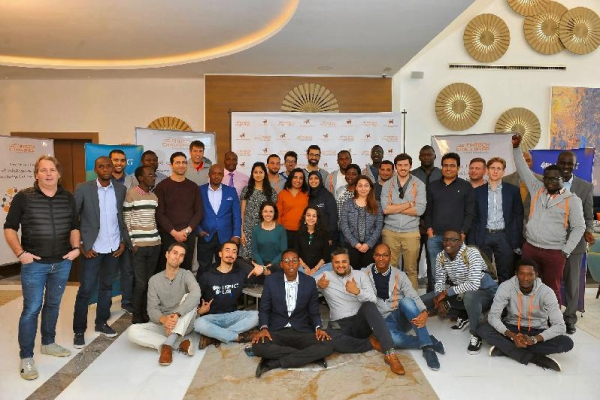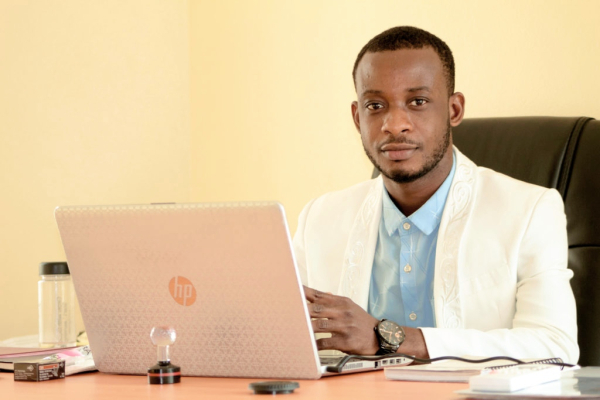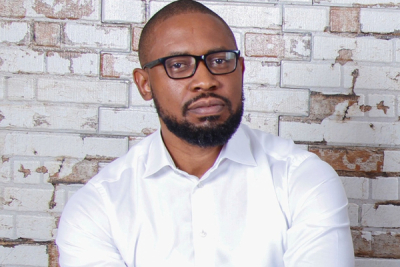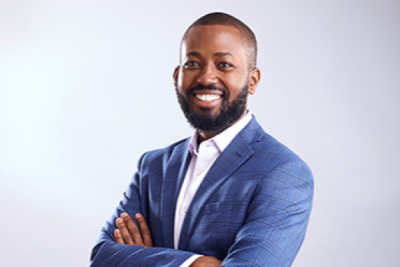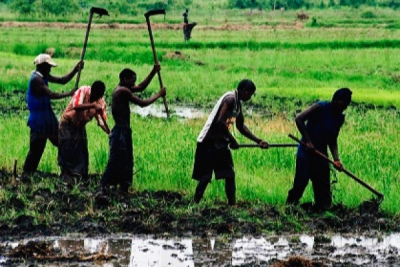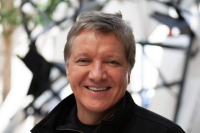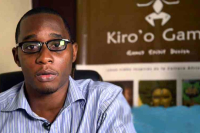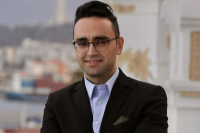
TECH STARS (1007)
Impact Lab plays a key role in promoting entrepreneurship and innovation in Africa. With a presence in 17 countries, it is among the largest technology hubs on the continent.
Founded in 2014 by Salma Kabbaj and Leyth Zniber, Impact Lab is a Morocco-based social innovation lab committed to accelerating the deployment of innovative solutions to address the continent's challenges.
It provides a dynamic platform for social entrepreneurs to develop innovative ideas and high-impact projects. It also assists in the operationalization of innovation governance and the framing of innovation strategy. The lab develops specific training programs adapted to the objectives of each company it supports and strengthens the digital skills of employees.
As an innovation hub, it also supports the framing and deployment of transformation projects following design thinking and lean principles. In addition, it connects companies, start-ups, and institutions to experiment collaborative approaches.
The lab has organized several acceleration programs including the Agritech Launchpad dedicated to Moroccan start-ups that have developed innovative solutions to address challenges in the agro-industrial value chain. It is also an implementing partner of the Investing in Innovation (I3) program in Francophone Africa.
From 2016 to date, Impact Lab has supported more than 250 startups, such as Kriterion, a company that uses artificial intelligence to provide actionable intelligence to digital companies in the heavy industry. It helped organize several events, such as the Fintech Challenge and the Mining Challenge. It has also deployed 25 innovation programs across the 17 countries it covers thanks to partners like Alvarium and Blackbelt in Morocco.
Melchior Koba
He is a finance graduate with a passion for using technology to develop practical solutions. With FeexPay, he enables merchants to collect payments online.
Jean Hugues Houinsou (photo) is the founder and CEO of JH Trading Group, a UK-registered group. Through that group, in May 2023, he launched FeexPay, a mobile payment aggregator that allows merchants to collect mobile money and card payments online.
FeexPay has four notable features. The first, FeexLink, allows merchants to generate secure payment links and send them to buyers via mail or any other communication channel. FeexCorporate, the second feature, allows users to send multiple payments simultaneously and pay staff, suppliers, etc…
The third feature is FeexMarket, a checkout solution. It allows users to create their e-shops and automatize payments. The last feature is FeexPage, a feature that personalizes checkout pages to improve customer experience.
FeexPay is an intuitive platform that is easy to learn. The commissions it collects on transactions processed are also the lowest in the Beninese market. They range from 1.5-1.7% of mobile money payments to 4.5% for card payments.
The fintech startup also gives users the possibility to make customized integrations. When interviewed by We Are Tech Africa about FeexPay's goals, Jean Hugues Houinsou said that the startup wanted to become the leading payment aggregator in Africa. “[...] We have initiated a process to expand to other countries, in addition to Benin,” to improve continental financial inclusion he said.
Jean Hugues Houinsou holds a master's in banking and finance from the National School of Applied Economics and Management in Benin. He is certified by the University System of Maryland in the application of the Scrum methodology to agile project management and by Harvard University in the fundamentals of leadership. He also holds Google certifications in digital marketing, Adwords, and Analytics, among others.
Apart from FeexPay, his group founded La Vedette Media, a web marketing agency. From 2019 to 2020, the versatile entrepreneur worked as the project manager of Google Digital Skills for Africa. Currently, he is the co-leader of the Google Business Group in Cotonou.
Melchior Koba
CTIC Dakar has established itself as a driving force in the Senegalese entrepreneurial ecosystem. As an incubator and accelerator, it has provided critical support to the country's tech start-ups, helping transform their innovative ideas into successful businesses.
CTIC Dakar is a Senegalese incubator created in 2011. It is the result of a public-private partnership led by FICTIS, the network of ICT incubators operating in Senegal. It aims to foster the development of growth potential SMEs in West Africa.
It is placed under the administrative supervision of the Ministry of Economy and Finance and the technical supervision of the Ministry of ICT. Currently, it is headed by Isidore Mbodji, its Executive Director.
The innovation hub offers a full range of services and programs to support start-ups at each stage of their development. It has three main support programs. The first one, Buntutekki, is a 3- month pre-incubation program that supports budding entrepreneurs from the ideation phase of their project to the business plan and formalization.
The second, Incub'Action, is a tailored 2-year incubation program that aims to mature startups’ economic models, allowing startups to easily conquer markets. The last one, Adduna, is a six-month acceleration program that allows existing companies to develop, and structure operations to reach the next growth stage and attract investors.
In about seven years of operation, the incubator has supported over 176 companies and start-ups. They include M-Louma, which connects agriculture value-chain actors, People Input, an African web and mobile service provider, and the web services company Inaota. It has coached more than 2,400 project leaders and organized more than 1,200 working sessions.
In 2022, the incubator took part in BAM: Empowering African Accelerators, a program designed to enable accelerators and incubators to amplify their impact and support future entrepreneurs in their respective operating regions.
In addition to being an incubator and accelerator, CTIC Dakar is positioned as a real player in the Senegalese entrepreneurial ecosystem. It regularly organizes events (more than 150 already), workshops, and conferences to promote exchanges and collaborations in the start-up community.
Supported by Sonatel, World Bank Group, and Info Dev, among others, CTIC Dakar also plays an active role in promoting technological innovation in Senegal, by encouraging research and development. It also supports ICT initiatives.
Melchior Koba
With over 17 years of tech and consulting experience, he helps consumer goods manufacturers easily sell their products.
Onyekachi Izukanne (photo) is the CEO and co-founder of TradeDepot, a digital platform that connects small African retailers with global consumer goods producers.
His platform, founded in August 2016, offers several services. First, it offers real-time data-driven trade intelligence to get a “product in the right retail stores at the right time.”
It also handles inventory, shipping, returns, and customer service for suppliers through its distribution centers across Africa. In addition, it provides microcredit to retailers to enable them to purchase more products and grow their businesses.
“Our focus is distribution, which is a very feasible problem because to purchase whatever item we need, distribution is necessary in getting it from the maker to us. Whether it is a shirt, food, or digital item, there needs to be distribution,” Onyekachi Izukanne told Nairametrics in 2022.
With TradeDepot's B2B platform, retailers can order from wholesalers 24/7 without encountering out-of-stock issues. By 2020, TradeDepot already had more than 200 employees and about 40,000 micro retailers using its platform to source basic household products from manufacturers such as Unilever, Nestlé, Danone, and Kellogg's.
Before TradeDepot, Onyekachi Izukanne co-founded C2G Consulting, a consulting and B2B integration firm. He served the firm as a managing partner between 2004 and 2017. Since 2018, he is its non-executive director.
His professional career began in 2013, as a consultant at Mobilizr LLC, a company that connects brands with a large community of social media users who act as their brand ambassadors.
Melchior Koba
He is a successful entrepreneur and investor who owns an investment holding focused on African tech firms. One of his companies, CarePoint, has become a reference in the African health sector.
Sangu Delle (photo) is a Ghanaian entrepreneur, investor, and author. He is the founder and CEO of CarePoint, a state-of-the-art healthcare company, which owns over 65 healthcare facilities in Egypt, Nigeria, Kenya, and Ghana.
He earned a Master of Business Administration and a Juris Doctorate from Harvard. He also has a Master's in international human rights law from Oxford University, and holds a doctorate in economic anthropology and African studies from the University of Birmingham.
CarePoint was formerly known as Africa Health Holdings Ltd. It operates six brands, Seha Healthcare, Lily Hospitals, CarePoint, Meridian Health Group, Rabito Clinic, and My Care Mobile in its operating countries. With more than 1,500 patients treated, more than 10,000 patients reached through telemedicine and more than 5,000 surgeries and essential procedures performed, the company employs 1,993 people and is one of the leaders in the sector in Africa.
Sangu Delle is also the founder and executive chairman of Golden Palm Investments, a pan-African venture capital firm focused on supporting leading African entrepreneurs who are leveraging digital technologies to solve some of the major challenges facing the African continent.
He is also the co-founder and president of Cleanacwa, a nonprofit which works to bring clean water to Ghana's least developed areas. The Eisenhower Fellow is a member of YPO, a global community of leaders, and the director of mPharma, a healthtech company that improves access to medicines.
A TED Fellow and term member of the Council on Foreign Relations, Sangu Delle was voted Young Person of the Year by Future Awards Africa in 2014. In 2015, he was named one of the 30 most promising African entrepreneurs by Forbes Magazine. Some four years later, New African Magazine named him one of the 100 most influential Africans.
The 2021 World Economic Forum Young Global Leader is the co-author of "Making Futures: Young Entrepreneurs in a Dynamic Africa." He has also presented TED talks on mental health, gender equality, and African macro-finance.
Melchior Koba
The organization wants to transform the agricultural ecosystem in West Africa. To achieve this, it offers training and workspaces and develops projects to support young entrepreneurs.
Founded in 2016, Yeesal Agri Hub is an innovative entrepreneurship support organization (SAEI) under the leadership of Awa Caba from Senegal. Its primary objective is to establish an ecosystem and deliver services that foster the economic growth of youth, returning migrants, novice farmers, and rural communities. The organization is dedicated to nurturing the skills and abilities of individuals interested in agribusiness, agritech, and the green economy while eliminating obstacles to entry into these sectors. Furthermore, Yeesal Agri Hub offers shared workspaces, platforms for promoting local products, and supportive environments to ensure entrepreneurs have optimal working conditions.
The organization has developed a dozen projects, including the Sandiara Agribusiness Innovation. This initiative aims to support rural entrepreneurs by introducing them to agroecological practices and assisting women's groups in the processing and marketing of agricultural products.
With partners such as Afric'innov, FAO, the United States Embassy in Senegal, the German Cooperation, and Broederlijk Delen, the hub has invested nearly 300,000 euros in agripreneurship. It has reached almost 1,000 direct targets and supported the design of six agritech tools.
In December 2022, it was selected to be part of the Rural Impacting Entrepreneurship project developed by the Small Foundation and Village Capital. In March 2023, it was also chosen for the Make-IT Africa project, a one-year program led by the German development agency GIZ, IRESEN (Institute for Research in Solar and New Energies), and impact agency Viridian Africa.
Melchior Koba
With over 40 years of experience in technology, corporate leadership, and venture capital investment, he founded LifeQ, South Africa's top independent provider of biometrics and health information obtained from wearable devices
Laurence Olivier is the CEO and co-founder of LifeQ, a South African-based technology company that specializes in wearable health technologies. He obtained his bachelor's degree in electronic engineering from the University of Pretoria in 1980. Additionally, he holds a Bachelor's in Advanced Finance and Strategic Marketing and a Diploma in Data Metrics from the University of South Africa in 1984 and 1986, respectively.
He established LifeQ in 2014 with Franco du Preez and Riaan Conradie to empower people to better understand their health and well-being. By harnessing its sensors, LifeQ provides commercial-grade, near-clinical health information feeds that generate health and wellness solutions for consumers, businesses, and clinical applications.
The company’s innovative solutions have attracted major brands such as Tag Heuer, Louis Vuitton, Hublot, Montblanc, Fossil Group, Samsung, Suunto, Xiaomi, and Motorola, resulting in numerous partnerships.
"LifeQ offers a 24/7 lens into the body, generating actionable health insights from personal wearable devices and assisting in screening for disease and illness and uncovering its root cause," said Olivier in February 2023.
In April 2023, the tech entrepreneur launched the first phase of LifeQ's virtual, personalized, preventive, and real-time care platform at the Health Information Management Systems Society (HIMSS) in Chicago. That same month, the company was selected as one of the 40 African start-ups participating in the first edition of the Africa Unicorns program.
Besides LifeQ, Olivier is a partner at venture capital firms 4Di Capital and Veritas Venture Partners. He also serves on the boards of Transatlantic Venture Management, Global Nutrition & Health, and the University of Pretoria, among others. From 2006 to 2009, he served on the boards of the Atlanta Venture Forum and the Jewish Federation of Greater Atlanta.
Melchior Koba
He founded KondjiGbale to help doctors fulfill their lifesaving tasks. The startup has been celebrated in Togo and beyond and won him several awards.
Yvon Koudam (pictured) is a Togolese entrepreneur and co-founder/CEO of KondjiGbale, a start-up that aims to facilitate access to healthcare.
His startup, founded in 2019, develops medical technology solutions to simplify the daily management and monitoring of people's health. Through its platform, doctors can access patients’ medical records. Patients can also access teleconsultation services every day from 6 am (Togo time) to midnight and order medication by sending their prescriptions. It also lists on-call pharmacies and gives users the possibility to set medication schedules.
KondjiGbale is accessible, in local languages, via many channels including a mobile and web app, a USSD code, a call center, and SMS. It is partnered with three health centers and over 34 health professionals. To date, it has some 5,165 patients and over 500 consultations booked.
In March 2023, Yvon Koudam represented his country at the Brazzaville International Youth Leadership Forum (BILYF). He shared his knowledge and experience on the panel: "Sustainable Development and Digital Economy".
Between 2016 and 2022, the entrepreneur worked as a programmer analyst in the start-up Clin Sarl U in Togo. In that position, he supported the design, programming, and development of applications for clients and companies such as TMoney and AgriStore. In December 2021, he was a guest speaker at the Emerging Valley Summit. Since December 2022, he is the Delegate of the Youth Innovation Week in Togo.
Through his startup, he has won several competitions, including the Pitch Your Startup Idea organized by Enginnova, the French Embassy in Togo, and the Togo Innovation Challenge of the Ministry of Grassroots Development in 2019. A finalist in the Hacking Covid-19 Africa competition initiated by HEC Paris in 2020, he was also among the 10 finalists of the fifth edition of the RFI App Challenge.
Melchior Koba
He develops video games that highlight African cultures in an industry that has long been dominated by foreign companies. Through his hard work and dedication, he is transforming the industry and inspiring a new generation of African entrepreneurs.
Olivier Madiba (photo) is a Cameroonian entrepreneur and video game developer. He is best known for being the founder and CEO of Kiro'o Games, the first video game studio in Central Africa. Through his work, Madiba established himself as one of the leading players in the African video game industry, showcasing African culture.
The Cameroonian-born got interested in video gaming quite early. After his computer science studies at the University of Yaoundé 1, he went on to study business management, as a YALI scholar, at Dartmouth College, in New Hampshire.
In 2013, he founded Kiro'o Games, a video game creation studio with an all-African team. The studio creates the best African digital catalog with a mix of video games, comics, animations, illustrations, etc. In 2016, the company released its first game, "Aurion: Legacy of the Kori-Odan" which was inspired by African culture. The game soon became a commercial success.
The studio also developed several other games, including the game "Le responsable Mboa," a comic game satirizing civil servants’ vices, and "Aurion: Kajuta Gems Fighters," a puzzle adventure game in the Aurion universe.
In 2007, Olivier Madiba established his first enterprise, MADIA GROUP, an IT company providing services such as web development, hosting, and web design. This venture marked the origin of the Kiro'o project.
His work at Kiro'o Games has earned him several awards. He is recognized as one of the leading players in the video game industry in Cameroon. In 2016, he was the runner-up of the Total Energies Startupper Challenge in Cameroon. He is one of the 20 French-speaking African entrepreneurs to watch in 2023 according to the African media outlet Warketing Digital.
Melchior Koba
He ventured into entrepreneurship while still a student. Years later, he launched Sylabs, an incubator that supports young Algerians in starting their businesses or acquiring new skills.
Abdellah Mallek is an Algerian entrepreneur and the founder of Sylabs, which claims to be the first private incubator and accelerator in Algeria. He graduated from the University of Science and Technology Houari Boumediene with a master's in applied mathematics in 2014.
The following year, he launched Sylabs as a technology center and coworking space that supports entrepreneurs, organizations, and talents, giving them the tools to monetize their creative potential, venture into entrepreneurship, and boost employability.
“Sylab’s most important achievement so far has been its ability to build an entrepreneurship community where there previously wasn’t one. Not only have we helped so many startups connect with big clients but we have also succeeded in attracting important stakeholders to the tech and entrepreneurship hub,” he said in 2020.
In partnership with the United Nations Industrial Development Organization (UNIDO), Sylabs launched Industry'Elle, a program that supports women entrepreneurs in operating in STEM (science, technology, engineering, and mathematics) industries. The enrollment phase of the program, which aims to encourage women's entrepreneurship, ended on May 5, 2023.
Abdellah Mallek ventured into entrepreneurship quite early, when he was still a student. In 2008, he created a for-profit group of math and programming talents who earn money by tutoring other students. In 2011, he co-founded an online tourism network called Welcome Dz. Some seven years later, he launched a radio show where subjects like entrepreneurship, technology, and career development were discussed. The show, called JOW RADIO, ended in 2020.
In 2012, he was one of the co-organizers of Startup Weekend, a well-known entrepreneurship competitive event. In December 2014, he was also a mentor for Ampion, an international program that guides and equips promising and high-potential startups. Between 2014 and 2016, the tech entrepreneur worked as a contributing writer for the media outlet Wanda.
In 2017, the media outlet Geeky Algeria named him one of the 10 Algerian entrepreneurs under 30 to watch. He is also on the list of the 30 most promising young African entrepreneurs published by Forbes magazine in 2018.
Melchior Koba
More...
Krystal Digital was founded by an experienced entrepreneur in the information and communication technology sector, who recognized the need for better information management in Nigerian schools after facing issues getting his college transcript.
In Nigeria, Temitope Ogunsemo is one of the leading figures in the booming edtech segment. He is the founder and CEO of Krystal Digital Network Solutions, which develops edtech solutions to help reduce absenteeism and enhance the skills of Nigerians.
Krystal Digital was founded in 2010 as a result of the founder's difficult and frustrating experience in retrieving his college transcripts. In response, he launched MySkool Portal, a web application that allows efficient school information management by ensuring proper documentation of school data. This marked the birth of Krystal Digital.
"Krystal Digital emerged as a result of my difficult and frustrating experience when I attempted to get hold of my academic transcript. In a bid to tackle such issues, I developed a school information management system for government-owned secondary schools, spearheaded by King’s College, Lagos. By virtue of the value proposition offered by my organization, the principal of the school liked the product so much, he asked other principals in his network to adopt a similar technology, and Krystal Digital was born," said Temitope Ogunsemo in 2019.
MySkool Portal is now used in more than 20 states in Nigeria, with over 50 institutional clients, including public high schools. It has more than 75,000 active students, bringing Krystal Digital's annual revenue to more than NGN1.1 billion ($2.4 million).
Mr. Temitope Ogunsemo is a graduate of the University of Ibadan, where he earned a bachelor's degree in chemistry in 2008. He also graduated from the University of Salford in the UK, where he earned a master's in information technology. He has worked as a software engineer on several projects and has received several national and international awards.
In 2017, the ECOWAS Youth Council distinguished him as the West African Personality of the Year. In 2018, he was named by Forbes magazine as one of the 30 most promising young African entrepreneurs, and his MySkool Portal app was chosen as the school management software of the year at the Nigeria Technology Awards. He also received the Most Entrepreneurial Organization in Information and Communication Technology award for his company at the 2018 Nigeria Entrepreneurs Awards.
Melchior Koba
He is a tech and marketing professional with years of experience. As the head of the marketing firm Nendo, he assists African companies with their digital marketing processes.
Mark Kaigwa (photo) is a Kenyan writer and entrepreneur with a degree in Information Technology and Business from Strathmore University. He is the founder and CEO of Nendo, a digital marketing company based in Nairobi.
His marketing company, founded in 2013, supports ambitious leaders and teams that are ready to engage Africa's connected audiences. It offers a fresh approach that includes training, research, strategies, and solutions useful to its clients, industry… Its experienced team offers companies a digital framework to study data, survey customers, evaluate competitors, and get quick results to maximize their revenues. It also offers a system to quantify brand impact using data, qualitative research, and communication.
Nendo also provides digital landscape mapping to allow companies to assess mobile, digital, and social media opportunities, future growth opportunities, and existing benchmarks to allocate resources. It currently covers over 20 African countries.
Its founder, Mark Kaigwa, is a member of the Kenyan chapter of the non-profit organization Entrepreneurs' Organization and an alumnus of its acceleration program. He is also the non-executive director of FinCredit Ltd, a Kenyan microcredit institution, and the course director of Media Leaders Africa, owned by the broadcasting corporation BBC.
An animator and creative consultant for Warner Bros in 2008, he worked for Brainwave Communications Ltd as a senior copywriter from 2009 to 2010. Between 2010 and 2013, he was a partner in the African Digital Art Network where he supported the research, writing, and curation of African animation. He was later a partner at Afrinnovator, a digital media and analytics company focused on business, economics, and investments in Africa. In 2017, for five months, he was a mentor for XL Africa, an acceleration program launched by the World Bank.
The entrepreneur has received several awards and recognitions including a nomination in the Forbes 30 under 30 list in 2013. In 2018, he made it to the Top 25 Men in Digital issued by DigiTalk Kenya. In 2022, he was the 2nd runner-up of the Global Compact Network Kenya (GCNK) SDG Pioneer.
Melchior Koba
She is a computer scientist with a passion for digital transformation, and her contribution to the Ugandan ICT sector was recently celebrated with a national medal.
Aminah Zawedde (photo) is currently the Permanent Secretary of Uganda's Ministry of Information and Communication Technology and National Guidance. She is a graduate of Makerere University, where she earned a bachelor's degree in statistics in 2001 and a master's degree in information systems in 2005. She also holds a graduate degree in education technology from the University of Cape Town (2014) and a Ph.D. in software engineering from Eindhoven University of Technology (2016).
Since 2021, she has been assisting the Ministry of ICT in leading, coordinating, and supporting the formulation of policies, laws, regulations, and strategies to develop the national ICT sector. Her career began in 2001 as the Data Officer for the Uganda Electoral Commission, followed by an internship in the IT department of the Uganda Revenue Authority in 2005. In 2006, she joined the Infectious Diseases Institute-Mulago Hospital as an IT consultant. From 2008 to 2016 and then from 2016 to 2021, respectively, she was an assistant lecturer and teacher-researcher at Makerere University.
Aminah Zawedde's outstanding work in promoting and advancing the use of ICT in Uganda was recognized on May 1, 2023, when the Ugandan government awarded her a national medal, along with Vivian Ddambya. She is also a member of the Board of Directors of the National Information Technology Authority-Uganda (NITA-U) and serves as the Non-Executive Director of DFCU Limited, one of Uganda's strongest financial institutions.
Melchior Koba
Through its acceleration programs, collaborative workspace, and networking events, Smart Lab provides young entrepreneurs with the tools and resources they need to develop their ideas and build successful businesses.
Smart Lab is an innovation lab and accelerator launched in 2017 by the Tanzanian digital transformation company Smart Codes. It aims to “fuel learning institutions to change the future of their students by working hand in hand to meet corporate needs.”
In line with its stated mission, the accelerator connects educational institutions with corporate partners to implement innovative solutions that will impact communities, stakeholders, and the African population.
Its corporate partners are typically companies that are already successful in tech and innovation. During its three-month Corporate Accelerators program, its partner in the program (Vodacom) mentors startups to help them build products and services that solve key challenges through rapid and lean experimentation techniques.
With its Smart Lab Talent, the accelerator assists partner companies in building top-notch engineering teams by offering its tech recruitment expertise.
It also organizes an annual series of quarterly events called Corporate Unwind, where the most influential companies in the Tanzanian ecosystem are invited to share their passion, tools, and tips to make and keep their company successful and influential in their field. The fifth edition took place in September 2022.
With the support of partners such as Seedspace, Ennovate Hub, Digital Opportunity Trust Tanzania, and X Prize Foundation, among others, Smart Lab has organized several hackathons, skills, and talent development programs. It has also created a coworking space for entrepreneurs to work, connect, and innovate collaboratively.
Melchior Koba


